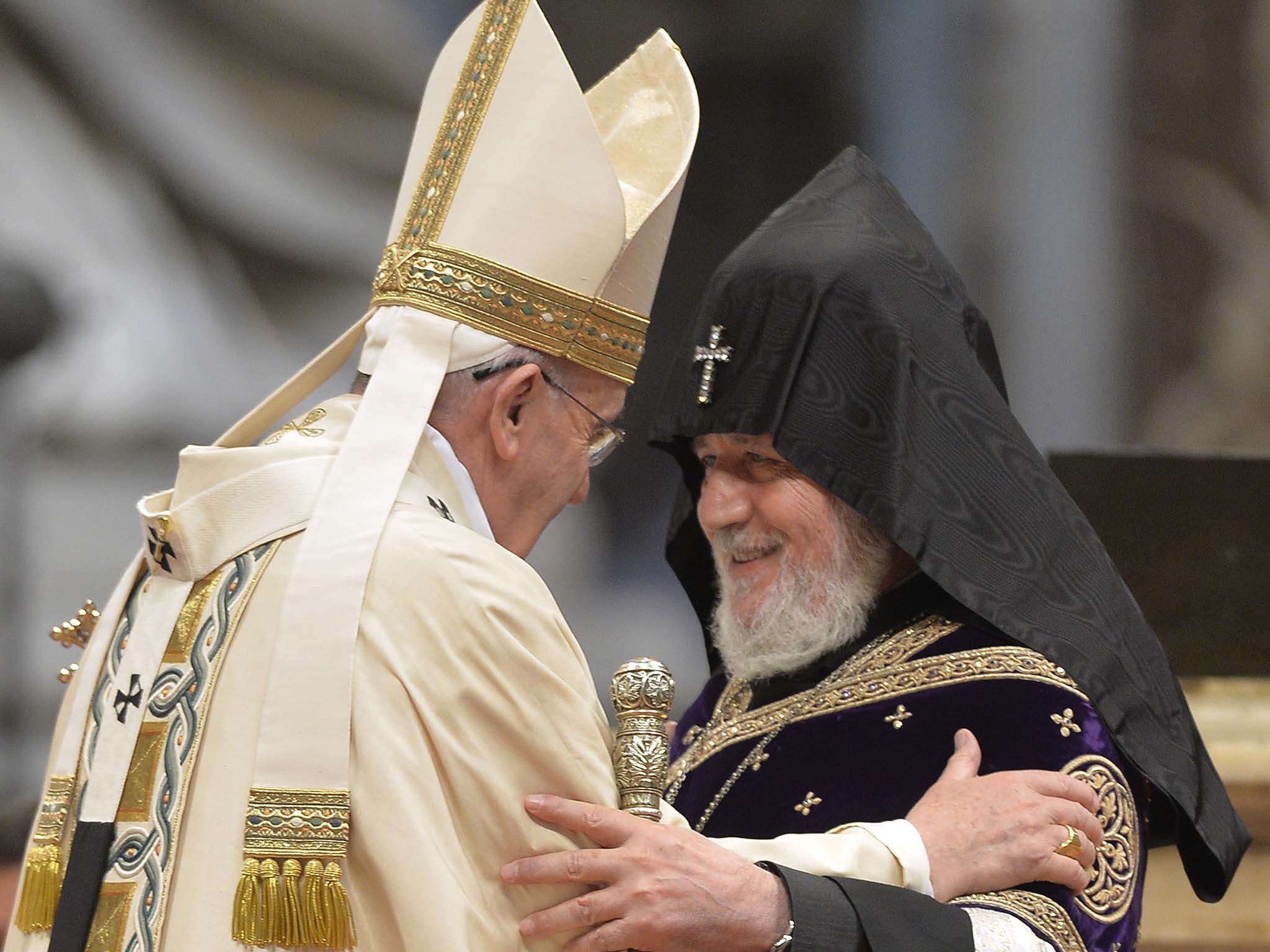Pope Francis to visit Armenian genocide memorial, but will not say 'genocide'
Vatican uses the term 'memorial of the massacres' in official briefing for visit

Your support helps us to tell the story
From reproductive rights to climate change to Big Tech, The Independent is on the ground when the story is developing. Whether it's investigating the financials of Elon Musk's pro-Trump PAC or producing our latest documentary, 'The A Word', which shines a light on the American women fighting for reproductive rights, we know how important it is to parse out the facts from the messaging.
At such a critical moment in US history, we need reporters on the ground. Your donation allows us to keep sending journalists to speak to both sides of the story.
The Independent is trusted by Americans across the entire political spectrum. And unlike many other quality news outlets, we choose not to lock Americans out of our reporting and analysis with paywalls. We believe quality journalism should be available to everyone, paid for by those who can afford it.
Your support makes all the difference.Pope Francis will visit Armenia’s genocide memorial this weekend, but is expected to avoid using the word “genocide”, in an effort to prevent an outcry from Turkey.
Last year the pope incurred Turkey’s displeasure after he described the massacre of up to 1.5 million Armenians between 1915 and 1923 as the “first genocide of the 20th century.”
Turkey responded by withdrawing its envoy to the Vatican for 10 months.
While the governments of 29 countries have officially recognised the Armenian genocide, Turkey and Azerbaijan are the only ones that deny it.
The pope’s three-day visit includes prayers at the Tsitsernakaberd genocide memorial in the capital Yerevan, but official literature released by the Vatican described the site as the “memorial of the massacres”.
Addressing journalists at a press briefing this week, the pope’s spokesman Frederico Lombardi said: “Why is there an obsession to use the word ‘genocide’ and ask about it in all the questions?
“We know what happened. None of us is denying that there were horrible massacres. We recognise this. We are going to the memorial precisely to remember this but we don’t want this to become a trap of political and ideological discussions,” he said.
He said the phrase “Medz Yeghern”, which translates as “great catastrophe” or “great evil”, was preferred to genocide.
Join our commenting forum
Join thought-provoking conversations, follow other Independent readers and see their replies
173Comments